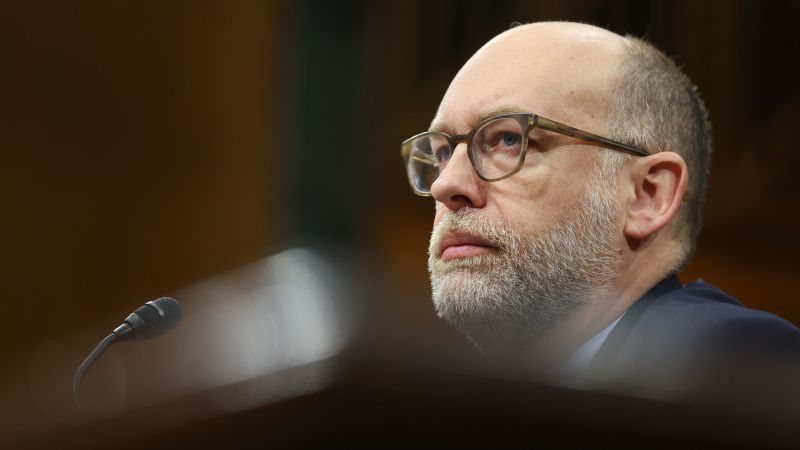Lutnick Says EU ESG Regulations Will Harm U.S. Energy Producers
PALM BEACH, FLORIDA - DECEMBER 16: U.S. President-elect Donald Trump listens as Trump's choice for ... [+] Secretary of Commerce, Cantor Fitzgerald Chairman and CEO Howard Lutnick speak during a news conference at Trump's Mar-a-Lago resort on December 16, 2024 in Palm Beach, Florida. (Photo by Andrew Harnik/Getty Images)
Getty ImagesRecent months have seen a flood of both American and European banks and major investment houses pulling out of international alliances based on the promotion of environment, sustainability, and governance (ESG) philosophy, and re-evaluating their years-long obeisance to this costly ideology. It is a societal trend about which the ministers at the EU seem oblivious and determined to ignore.
But President Donald Trump and his key appointees are well aware of this growing trend and seem intent upon acting on it. Among the whirlwind of policy announcements coming out of the White House, President Trump has set his sights on a new tariff target: the European Union, blasting the bloc as an “atrocity” on trade. But the challenges imposed by the EU on American businesses go beyond its steep tariffs – Europe’s burdensome ESG-based regulatory regime continues to tilt the scales, making it even harder for U.S. companies to do business on the continent.
Europe’s Green Deal package exemplifies this regulatory overreach, layering several complex mandates onto businesses operating in the bloc. One of these directives, The Corporate Sustainability Reporting Directive (CSRD), forces companies to disclose extensive ESG metrics, while the Corporate Sustainability Due Diligence Directive (CSDDD) imposes strict requirements for supply chain due diligence and climate transition planning. Meanwhile, the EU Taxonomy dictates what qualifies as a “sustainable” economic activity, arbitrarily influencing investment flows and capital allocation.
Together, this web of red tape raises compliance costs, stifles innovation, and makes it astronomically more difficult for America to provide Europe with the oil and liquefied natural gas (LNG) it needs to power its economies as it continues to wean itself from its dependency on Russian energy. So, why is Europe embarking on this regulatory crusade?
At its core, the problem is that the European Union’s leaders want to have their cake and eat it too. They want (and need) American energy and products but refuse to acknowledge the fact that this necessitates a move away from paralyzing ESG standards and impracticable net-zero goals.
Meanwhile, American companies must comply with overly bureaucratic regimes to appease Europe’s perceived moral high ground. Indeed, at a time when the continent is struggling to keep its lights on, it makes little sense to force allies into compliance with byzantine regulations as they attempt to provide the country with much-needed energy supplies.
While the Biden administration failed to take action on this issue – despite former Treasury Secretary Janet Yellen warning of “negative, unintended consequences” from the CSDDD – the Trump administration appears likely to approach the bloc’s extraterritorial ESG rules with a stronger hand.
In fact, President Trump’s Commerce Secretary, Howard Lutnick, has already taken aim at the E.U.’s interference with American energy production. In comments submitted to the Senate Commerce Committee, Lutnick singled out the CSDDD as a serious threat to American industry and the American economy.
“The European Union’s Corporate Sustainability Due Diligence Directive (CS3D) that was recently adopted by the EU, will impose significant costs on thousands of U.S. companies doing business in Europe,” Lutnick writes, adding, “This comes at a time when U.S. exports of natural gas are keeping the heat on in Europe this winter because the regulatory structure there has caused companies to flee. Yet the EU is attempting to harm the competitive advantages of U.S. companies by forcing them to comply with CS3D.”
Lutnick also made it clear that the Commerce Department would not stand idly by, stating that the administration would “consider using all available trade tools at our disposal” to push back against the E.U.’s regulatory overreach and defend American competitiveness on the global stage. President Trump has also already signaled its readiness to escalate economic pressure, recently threatening new tariffs on European goods in response to its “unfair” treatment of American businesses.
Whether President Trump pursues trade or diplomatic measures to push back on Brussels’s regulatory overreach, it has a unique window of opportunity to ensure that Europe doesn’t further hamstring the administration’s energy agenda.
Remarkably, once-firm support for Europe’s climate agenda is rapidly diminishing among the bloc’s major economies as the region struggles to maintain energy security, much less competitiveness. Just a few weeks ago, German Federal Minister of Finance Jörg Kukies warned that the CSRD’s reporting requirements would burden small- and medium-sized businesses, advocating for a two-year delay to develop a "significantly streamlined, effective, and efficient system for sustainability reporting."
Similarly, France urged the E.U. to implement a “massive regulatory pause” on recent legislation, including the CSRD and CSDDD, citing the economic strain caused by regulatory complexity and the competitive challenges posed by the "uncooperative policies of our main competitors." Under pressure, the European Commission announced it will release an omnibus package at the end of February to streamline several major regulations, including the three flagship ESG directives included in the European Green Deal.
As President Trump and Commerce Secretary Lutnick continue to re-negotiate trade deals with our European allies, they have a unique opportunity to protect American businesses from the EU’s stubborn devotion to the ESG agenda. The EU’s member nations can have their U.S. energy cake, but shouldn’t be allowed to eat it with these costly ESG regulatory actions.











